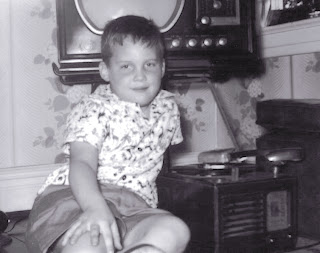skip to main |
skip to sidebar
 Critical listening as a key to successful sound production resonates well with me. How else can the lyrebird make its incredible imitations? [Listen to the video clip: www.youtube.com/watch?v=VjE0Kdfos4Y ] It's not born with these built-in sounds but with the ability to listen then mimic.
Critical listening as a key to successful sound production resonates well with me. How else can the lyrebird make its incredible imitations? [Listen to the video clip: www.youtube.com/watch?v=VjE0Kdfos4Y ] It's not born with these built-in sounds but with the ability to listen then mimic.
Hearing the lyrebird made me think of several friends who can listen to a guitar lick or a foreign accent, then easily employ it through fingers or voice with amazing results. One of them is dyslexic and this made me wonder if the aural part of his brain was compensating. Maybe so, but does it matter? They're all excellent listeners who analyze how the sound is produced, know their "equipment," then match their output with the sound in their minds. Is it any different for the best producers or comic impersonators? Can we do the same with sufficient practice?
 Whenever the fire siren cuts the air in my town I think about a couple of things: the terrified ones who phoned in for help; and the brave souls who leave whatever they're doing to go save lives and put out fires. After the siren summons the volunteers, the next sound is of fire trucks wailing and barking alarm, alerting drivers to pull over, clear the way. Sometimes we hardly notice these sounds as they blend into the urban soundscape.
Whenever the fire siren cuts the air in my town I think about a couple of things: the terrified ones who phoned in for help; and the brave souls who leave whatever they're doing to go save lives and put out fires. After the siren summons the volunteers, the next sound is of fire trucks wailing and barking alarm, alerting drivers to pull over, clear the way. Sometimes we hardly notice these sounds as they blend into the urban soundscape.
My dad remembers a different sound of alarm. As a Brooklyn boy born in 1899, he witnessed a team of horses with nostrils snorting, hooves sending sparks as they rattled down the cobblestone streets, the wheels of the pumper roaring and a big brass bell clanging. And there was one other sound: a dalmation barking as it zigzagged in front of the horses, nipping at the heals of pedestrians to clear the way. A rich sound picture, isn't it? Which is probably why my dad remembered it so well and told about it so vividly. Like music, everyday sounds are historical, cultural and have the texture of time and place woven into them.
 The better the listener, the better the producer. And how does one become a better listener? Being still allows one to be more observant. It's analogous to the phrase, on a clear day you can see forever. On a quiet day you can hear farther.
The better the listener, the better the producer. And how does one become a better listener? Being still allows one to be more observant. It's analogous to the phrase, on a clear day you can see forever. On a quiet day you can hear farther.
There's good practice to be found at www.exploratorium.edu/listen/ -- put on your headphones.
One of the features on this enjoyable website is the question: "What is the quietest sound you can hear right now?" That reminded me of a song I wrote several years ago for my students but never got to sing to them. As I was canoeing one quiet spring morning I witnessed a fish swallowing a fly at the water's surface, and wondered: how quiet would one have to be to hear that fish swim? Other examples grew in my imagination. The lyrics are reprinted below.Be still. Be as quiet as a pond before sunrise.
So still that when a rainbow trout, fishing for flies,
Eyes a mosquito, you hear it swim. Be still.
Be still. Be as quiet as shadows at noon.
So still that when a red-winged blackbird, dropping a seed,
Disturbs a chipmunk, you hear it blink. Be still.
Be still. Open your ears and your eyes and your mind,
Open your heart and your spirit might find
A peace on this earth, the one home we share
Where we drink the same water and breathe the same air.
Be still. Be as quiet as a forest at midnight.
So still that when the temperature drops, freezing the sap
In the white pines, you hear it snap. Be still.
Be still. Be as quiet as a cloud in the sky.
So still that when the rainstorm is over and moisture is moving,
Evaporating, you hear it rise. Be still.
Be still. Open your ears and your eyes and your mind,
Open your heart and your spirit might find
A peace on this earth, the one home we share
Where we drink the same water and breathe the same air.
Be still. Be as quiet as if six feet under.
So still that when the tree you once planted, sends out its roots
And feeds on your body, you hear it grow. Be still. © 1999 dB



